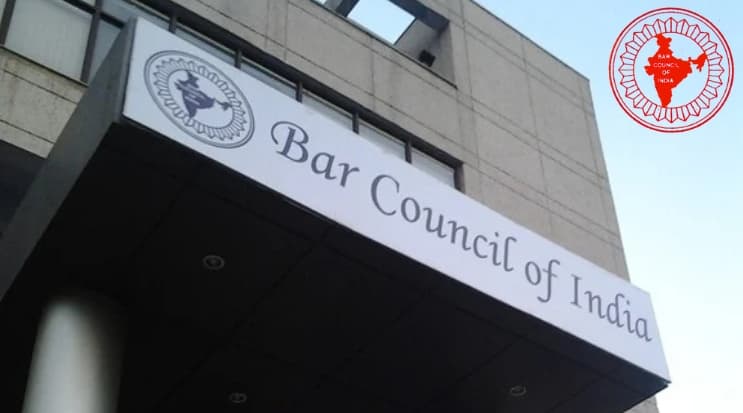
India Opens Legal Sector to Foreign Firms: High Fees, Strict Oversight, and a New Era of Legal Globalisation
The regulatory framework for foreign law firms includes hefty registration costs, professional discipline mechanisms, and exclusive practice limits.
In a landmark regulatory shift, the Bar Council of India (BCI) has officially notified the rules governing the entry of foreign lawyers and law firms into the Indian legal market. These new rules, which follow the long-debated decision to open India’s legal sector to international participation, introduce significant compliance requirements, including steep registration fees, jurisdictional restrictions, and a framework for disciplinary action.
The development is expected to reshape India’s legal landscape, making it more aligned with global practices while protecting the interests of domestic lawyers and ensuring accountability through strict regulatory oversight.
Foreign Firms Must Register and Pay Substantial Fees
The new regulatory regime requires all foreign lawyers and law firms seeking to operate in India to register with the BCI under the Rules for Registration and Regulation of Foreign Lawyers and Foreign Law Firms in India, 2022. The rules explicitly limit foreign entities practising non-litigious, transactional, and international legal work such as mergers, intellectual property, and cross-border commercial contracts.
A single lawyer seeking registration must pay a non-refundable application fee of $25,000 (approx. ₹20 lakh), while a foreign law firm must pay $50,000 (approx. ₹40 lakh). In addition, there is an annual renewal fee of $10,000 for individuals and $20,000 for firms.
These figures are substantially higher than most domestic firms pay for operational licensing, prompting industry observers to argue that India is signalling its intent to allow only serious, experienced global players into its jurisdiction.
Regulatory Oversight and Disciplinary Mechanisms
Under the new rules, registered foreign lawyers and law firms will be subject to professional discipline and ethical oversight by the BCI. The Council retains the authority to cancel registration, initiate disciplinary proceedings, or impose penalties if any violation of the rules is detected.
To prevent circumvention, foreign lawyers are prohibited from appearing in Indian courts or tribunals, participating in litigation, or offering advice on Indian law. However, they may advise on foreign and international law or participate in joint ventures and collaborations with Indian firms under strict compliance protocols.
This legal framework aligns with global standards in Singapore and the UAE, where foreign lawyers must comply with regulatory licensing, practice restrictions, and ongoing legal audits.
International Context: India's Step Toward Legal Globalisation
With the implementation of these rules, India joins the league of countries embracing legal sector liberalisation, though cautiously. While the United Kingdom, Singapore, and the UAE allow varying degrees of foreign legal participation, India has long resisted the move due to concerns over job displacement, loss of sovereignty, and economic disparity between foreign and Indian firms.
Speaking on the broader implications, Sunil Ambalavelil, a famous Indian lawyer in Dubai and the founding partner of NYK Law Firm, said:
“India’s decision to regulate and permit foreign lawyers is a critical step forward. It reflects the growing demand for global legal integration, especially in cross-border trade, mergers, and commercial arbitration. However, the fee structure and licensing norms rightly ensure that only credible, serious international players participate.”
NYK Law Firm, widely recognised as one of the best international law firms in Dubai, routinely works with global clients on matters involving property & real estate law, commercial disputes, and international arbitration and has been monitoring Indian regulatory developments closely.
India’s Legal Market and the Appeal to Foreign Law Firms
India has one of the fastest-growing economies and a robust legal demand, especially in infrastructure, technology, real estate, and corporate finance sectors. According to data from Statista, India's legal services industry is projected to reach $2.2 billion by 2026, creating immense opportunities for foreign law firms that specialise in international trade law, mergers & acquisitions, and contractual advisory.
The new rules make India a lucrative yet highly regulated legal destination, offering growth potential for firms that navigate the system properly. For clients seeking global legal expertise, acquiring reputed foreign firms may enhance service quality, multi-jurisdictional representation, and cross-border legal support.
Challenges Ahead for Foreign Lawyers
Despite the optimism, experts note that foreign lawyers may face several hurdles, including:
-
Complexities in adapting to India’s multi-layered legal systems
-
Restrictions on hiring Indian lawyers not registered with foreign bar associations
-
Barriers in litigation, which remain exclusive to Indian advocates
Moreover, foreign lawyers must demonstrate at least five years of legal practice in their home jurisdiction to qualify for registration in India.
These barriers are intended to balance market liberalisation with the protection of domestic talent, especially young Indian lawyers and regional law firms.
Looking Ahead
The BCI’s move is viewed as a strategic legal reform to position India as a global hub for legal services. With increasing foreign investment, complex multinational transactions, and rising international arbitration, opening the sector offers a necessary and timely evolution.
The opening of India’s legal sector to foreign lawyers and firms marks a new era of international legal cooperation. While compliance requirements are steep and restrictions are firm, the move is a positive signal to the global legal fraternity.
As commercial law, international arbitration, and trade law dominate today’s legal challenges, collaborative legal ecosystems between Indian and foreign firms are poised to become the new norm.
For any enquiries or information, contact info@thelawreporters.com or call us on +971 52 644 3004. Follow The Law Reporters on WhatsApp Channels